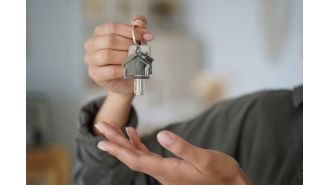"Understanding the psychology behind takeaway coffee and its empowering effects."
Can I get an iced latte to take away?

Have you ever noticed the sense of power and productivity that comes with strutting around the city streets, coffee cup in hand? It's almost as if that little cup holds some kind of magical energy that makes us feel unstoppable. With our nails freshly done, sunglasses on point, and outfit slaying, we become the ultimate boss babes.
From iconic characters like Andy Sachs from The Devil Wears Prada to Carrie Bradshaw from Sex and the City, we've seen countless individuals take their favorite hot beverages on a stroll through the bustling streets of New York City. And let's be real, there's nothing quite like sitting down with a friend and actually taking the time to enjoy that pricey cup of joe we just splurged on. But hey, that's not the point here.
The truth is, whether it's a branded cup or a more environmentally friendly reusable one, the coffee cup has become much more than just a vessel for our caffeine fix. As a recent piece in Grazia pointed out, it has evolved into a symbol of empowerment, productivity, and even belonging.
In fact, it has become so ingrained in our daily lives that some people, like the popular TikTokers @thelauraandbeckyshow, can no longer enjoy their favorite caffeinated drinks without a takeaway cup, even if they're not actually taking it somewhere. It's mind-boggling, to say the least.
But why do we feel so powerful with that cup in hand? According to psychologist and RoutineBase co-founder Aristotle Paulides, it's not just about the coffee. Holding that cup represents our goals and how we want to be perceived by society.
"It's a symbol of a busy, purposeful lifestyle," he explains. "Walking down the street with a branded coffee cup projects an image of engagement, productivity, and constantly being on the move." It's like participating in a cultural ritual that exudes modern efficiency and urban sophistication.
And let's not forget about the brand itself. As the coffee market is largely dominated by a few major chains, buying into their brand also feeds into a sense of collective consciousness. It's like saying, "Look, I'm part of the cool crowd too!"
Howard Gill, head of coffee at Grind, agrees with this sentiment, calling the takeaway coffee an "iconic" piece of culture. He even compares it to the iconic image of Carrie Bradshaw striding down the street with her coffee in hand.
But how did we get here? Traditionally, cafes have served as a "third space" – a place that's neither work nor home, where people can connect with both others and the brand. As Howard notes, the barista knows your order, and there's a sense of community. And the takeaway cup extends that relationship, strengthening the connection to the brand's identity.
However, with the rise of chains like Starbucks in the late 20th century, cafes had to adapt to the increasing demand for to-go options. As Howard explains, this was largely driven by economics, as rising rent costs meant that cafes couldn't rely on customers sitting for long periods of time.
To stay afloat, cafes had to make their takeaway options more appealing, from branded cups to high-quality drinks. And let's be real, even when served in a paper cup, a good cup of coffee can still make us feel like we're living our best lives.
Ultimately, the coffee culture has become a powerful force, and people want to associate themselves with brands that represent the best of it. It's no longer just about the drink itself; it's about the entire experience and the confidence that comes with it. So next time you strut down the street with your takeaway coffee, remember that you're not just holding a cup – you're holding a symbol of empowerment and belonging.






